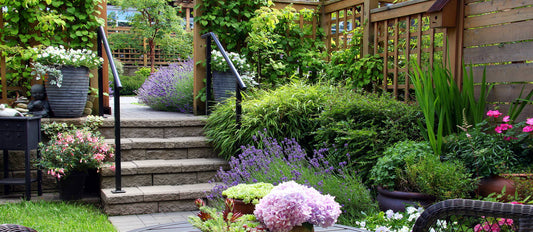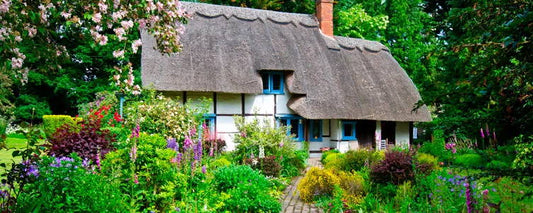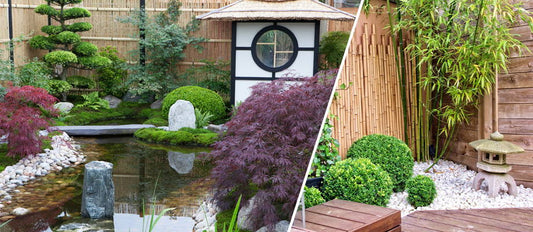Yellow grass, withered plants and dry soil are now a thing of the past! We're here to help you keep your garden as beautiful as possible during a hot, dry summer. There is nothing nicer than a lush, green garden that's full of flowers. But in hot weather your plants need some extra care. We've set out the most important tips for you.
1. Give your plants a lot to drink
In the summer water your plants more often than you would in the winter. The water in the potting soil, roots and leaves evaporates faster due to the heat. This means you need to replenish the water more often. Water your plants once every few days or even every day. Pay attention to the plant's water requirements. This is usually stated on the label on the plant. You can also look up your plant on our website. Water your plants in the morning or in the evening when the sun is down. It's cooler then and the water won't evaporate as quickly. Water evaporates very quickly during the day and the water droplets can cause burns. The droplets act like a kind of magnifying glass that amplifies the light that falls on the leaves. This can cause wounds on the leaves.
To keep water costs as low as possible and avoid a water shortage, you could consider buying a rain barrel. This stores rainwater, which you can use to water your plants later. Rainwater is often better for plants than tap water. This is because there is more calcium in tap water. Don't forget other products that can help you like garden hoses, watering cans or irrigation computers. You can find all these in our watering range.
2. A little extra power
Hopefully you've already given your plants some food in March, after the dormant period in winter. In June or July, add some compost to improve the quality of the soil. Note: you should use organic fertiliser. Artificial fertiliser does not improve soil life. When you add organic fertiliser, the soil doesn't dry out as quickly during the hot summer, which means the soil is better at retaining water for plants to absorb.
Cover the soil
Covering the soil where plants are located is another way to prevent the soil from drying out quickly. You can use ground-covering plants to do this. These can be found in our ground cover range. You can also use dead material such as stones, gravel or bark. General waste also works well, such as cocoa shells or peach pits.
Potted plants and plants in open ground
The above tips apply to both potted plants and plants in the open ground. Potted plants can be moved about and therefore protected against too much light and heat. Put potted plants in places where they will get enough shade to cool off. You can also place flower pots close together. This way the sunlight will fall on a larger surface and the plants won't dry out as quickly. Please note: Potted plants generally dry out faster than plants in the open ground.
Plants in the open ground can only be moved by replanting them. This is usually done between October and March. Replanting in the summer is not recommended because the plants often do not survive. Replanting trees is not recommended at all. Their roots are firmly attached to the ground. They will have a hard time attaching to new soil. Protect them by setting out a parasol that provides them with shade. However, shrubs and other perennial plants can be easily replanted. If you see that some plants are getting too much sun this summer, move them in a different place in the autumn. Also consider what new flower bulbs you're going to purchase in autumn. We advise drawing up a garden plan in order to have a good garden layout.
Unwelcome visitors
In addition to the high temperatures, diseases and pests can also appear in summer. You start to see more flies, ants and other insects in the garden. Protect your plants with our troubleshooters. We have the right product for every disease or infestation. What's more, most of them are organic. This means that they don't contain any substances that are harmful to animals, humans, plants or the soil. This way your plants will be as healthy and strong as possible.
It promises to be a beautiful summer for you and your plants. With these tips, your plants will stay healthy throughout the summer and you can enjoy your garden in peace. Do you need some extra help to take care of your garden? Then check out our care and maintenance range for all kinds of useful tools.







